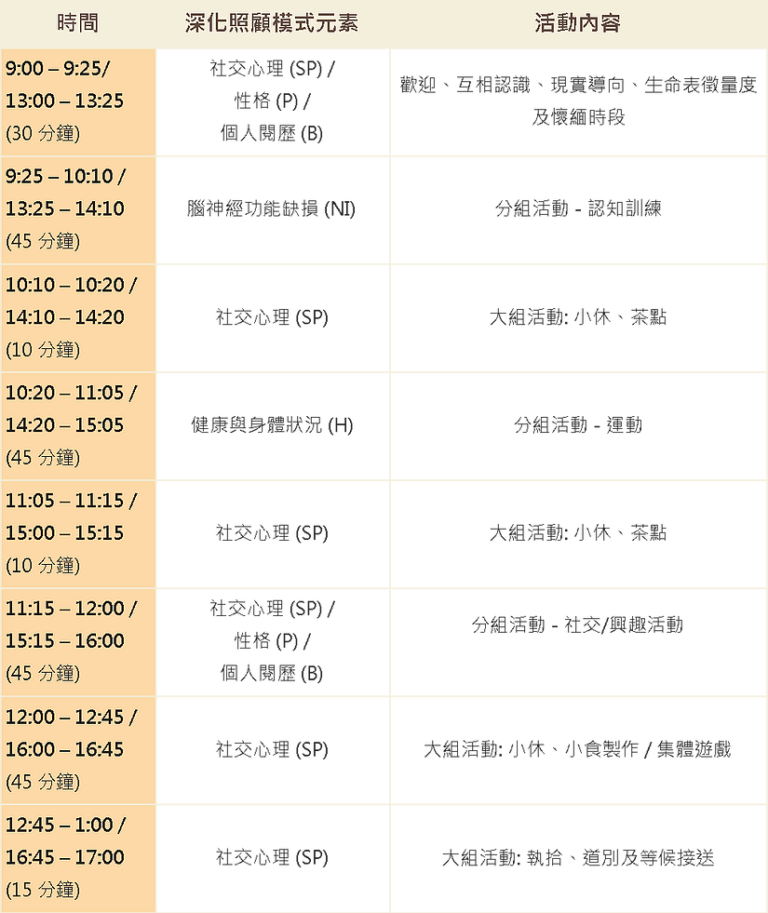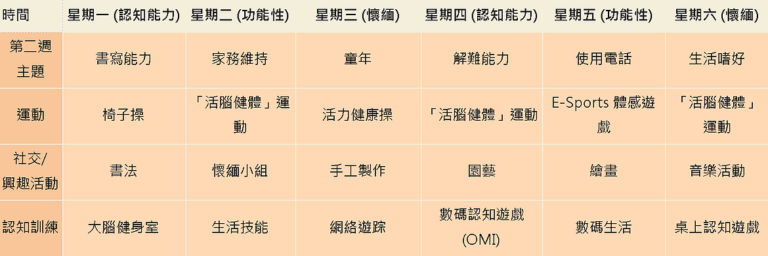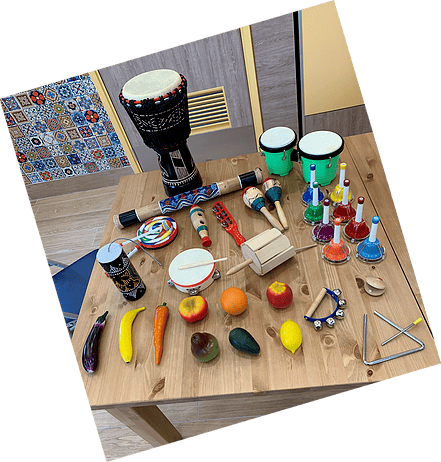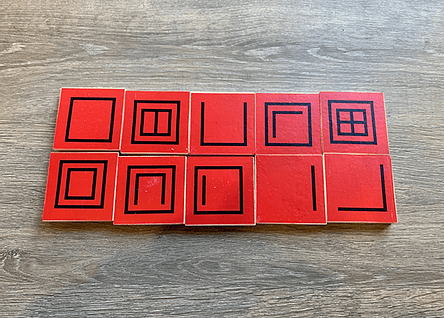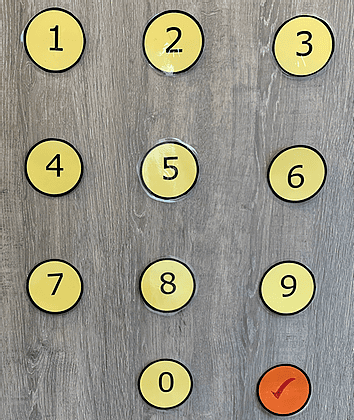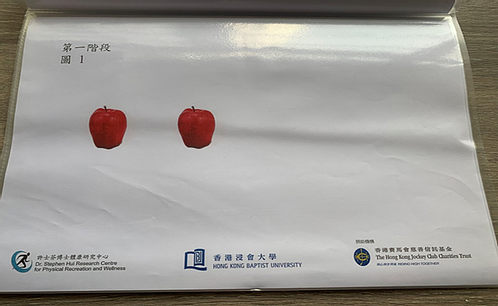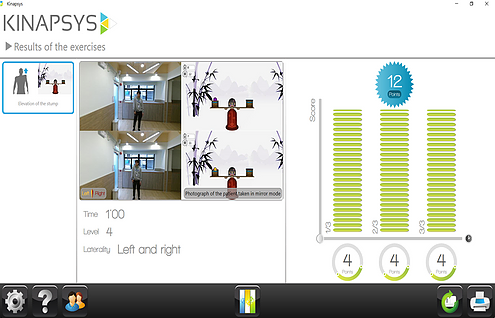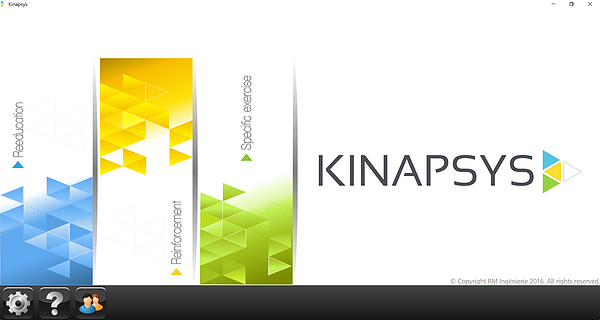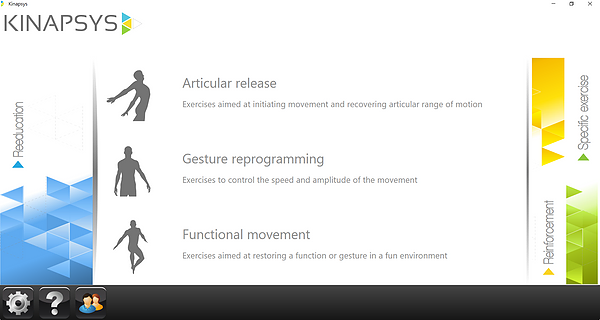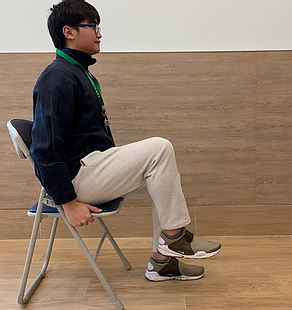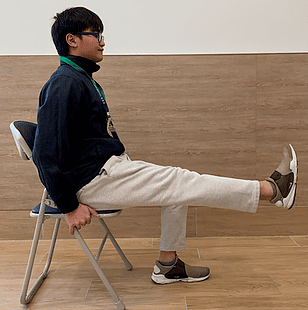Person-Centered Care
Person-centered care respects and values every elderly individual, designing appropriate services tailored to their perspectives and needs.
The concept of "Person-Centered Care" includes four main elements, viewing the elderly as VIPS:
Person-Centered Care (PCC) = V + I + P + S*
V (Value) = Respecting and valuing individuals with dementia
I (Individual) = Viewing patients as independent individuals
P (Perspective) = Approaching from the perspective and viewpoint of individuals with dementia
S (Social) = Creating a positive and caring social-psychological environment
*The core philosophy of "Person-Centered Care" (PCC) is also recognized in the World Health Organization’s 2012 report on dementia.
World Health Organization and Alzheimer’s Disease International (2012). Dementia: A Public Health Priority. World Health Organization.

